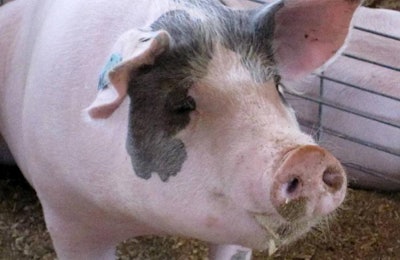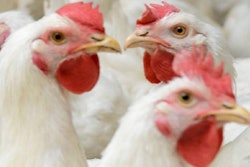
Mexico is free of African swine fever (ASF) and to reduce the risk of the disease entering the country, the National Service of Health, Safety and Food Quality (Senasica) is conducting permanent surveillance of pests and diseases that could put livestock and public health in peril.
As part of this surveillance and to reinforce the actions carried out by the Department of Agriculture and Rural Development (Sader) to keep the country free of ASF, the drill will be carried out September 24-26, according to Senasica reports.
This drill has the purpose of evaluating the rapid response systems in face of health emergencies. In addition, all the people involved must know precisely how they should act, as well as the actions they must take to quickly control and eradicate the disease from the country.
The objective is to promote the coordination and exchange of information among the actors related to such a health emergency. Likewise, to assess human and material resources to improve the response capacity to emergencies, in case ASF outbreaks occur in the country.
Field drills will be carried out at the same time in eight swine producing regions in the states of Chiapas and Yucatán, in the south and southeast, in Guanajuato, Puebla, Querétaro, San Luis Potosí, in the center of the country, and in Nuevo León and Sonora in the north and northwest.
The more than 500 people who will participate are academics, researchers, technicians and sanitary inspection officers of Senasica, Sader staff, employees of the Agricultural Development Departments of the participating states, personnel of the State Committees of Livestock Development and Protection, and national security authorities. Likewise, the productive sector, journalists and technicians from the United States, Canada and the International Regional Agency for Agricultural Health (OIRSA) will participate as observers.
During the drill, the crisis center at the Senasica Health Intelligence Unit will be activated, under the command of the chief director of the Sader agency, the director general of Animal Health and the director of the Mexico-United States Commission for the Prevention of Foot-and-Mouth Disease and Other Exotic Animal Diseases (CPA).
In addition, the National Animal Health Emergency Mechanism (Dinesa) will be implemented, the protocols established at the national level for the response to outbreaks of ASF will be reviewed and improved, and counter-epidemic actions will be used that must be applied to control and eradicate the disease, adapted to different scenarios.
Around the world, health surveillance agencies in various countries carry out these types of exercises to assess the response to health emergencies. In this way, failures are identified and corrected later, and awareness among producers, industry and veterinarians about the importance of immediate notification for the control of ASF and other animal diseases is raised.


















